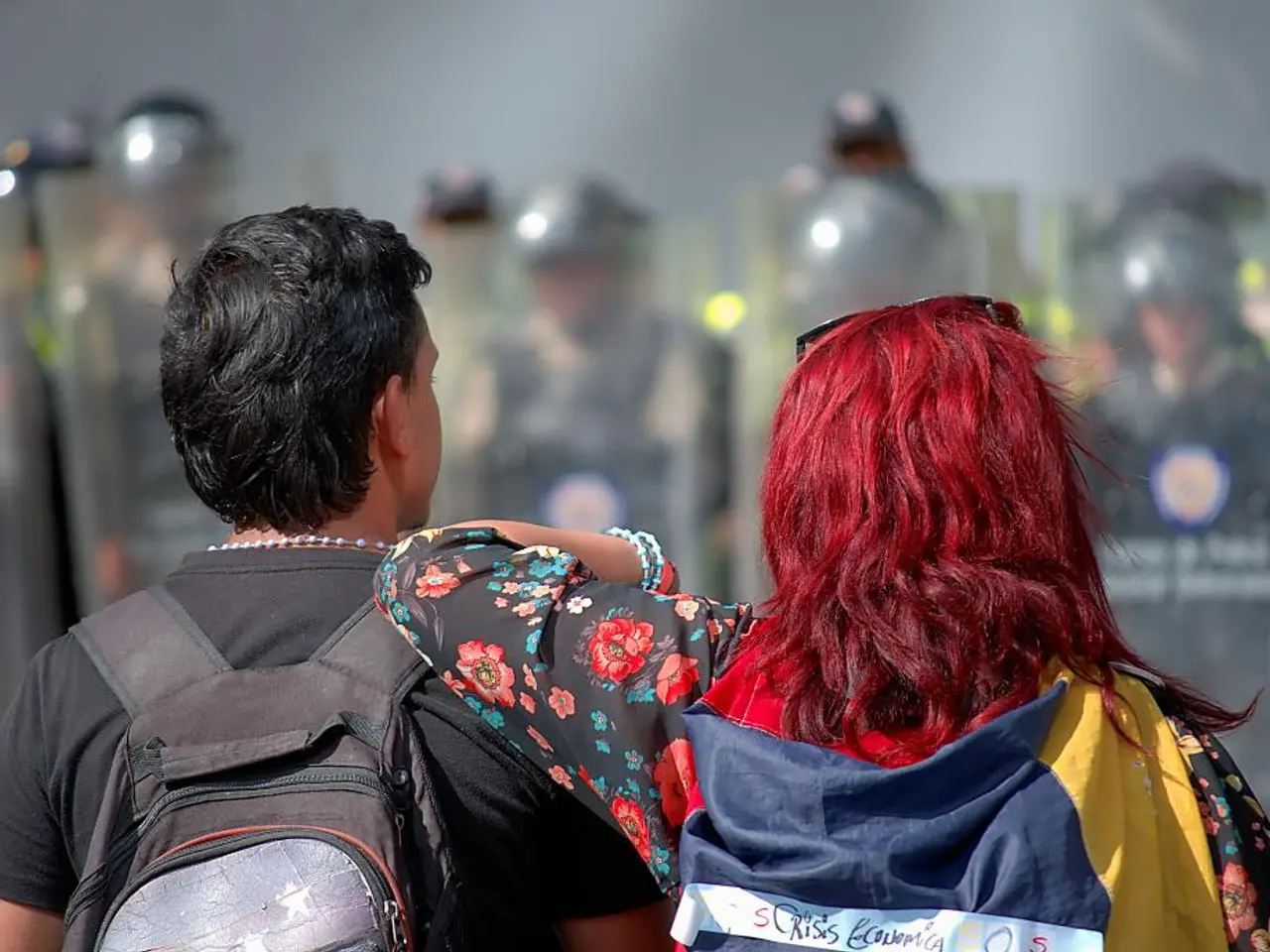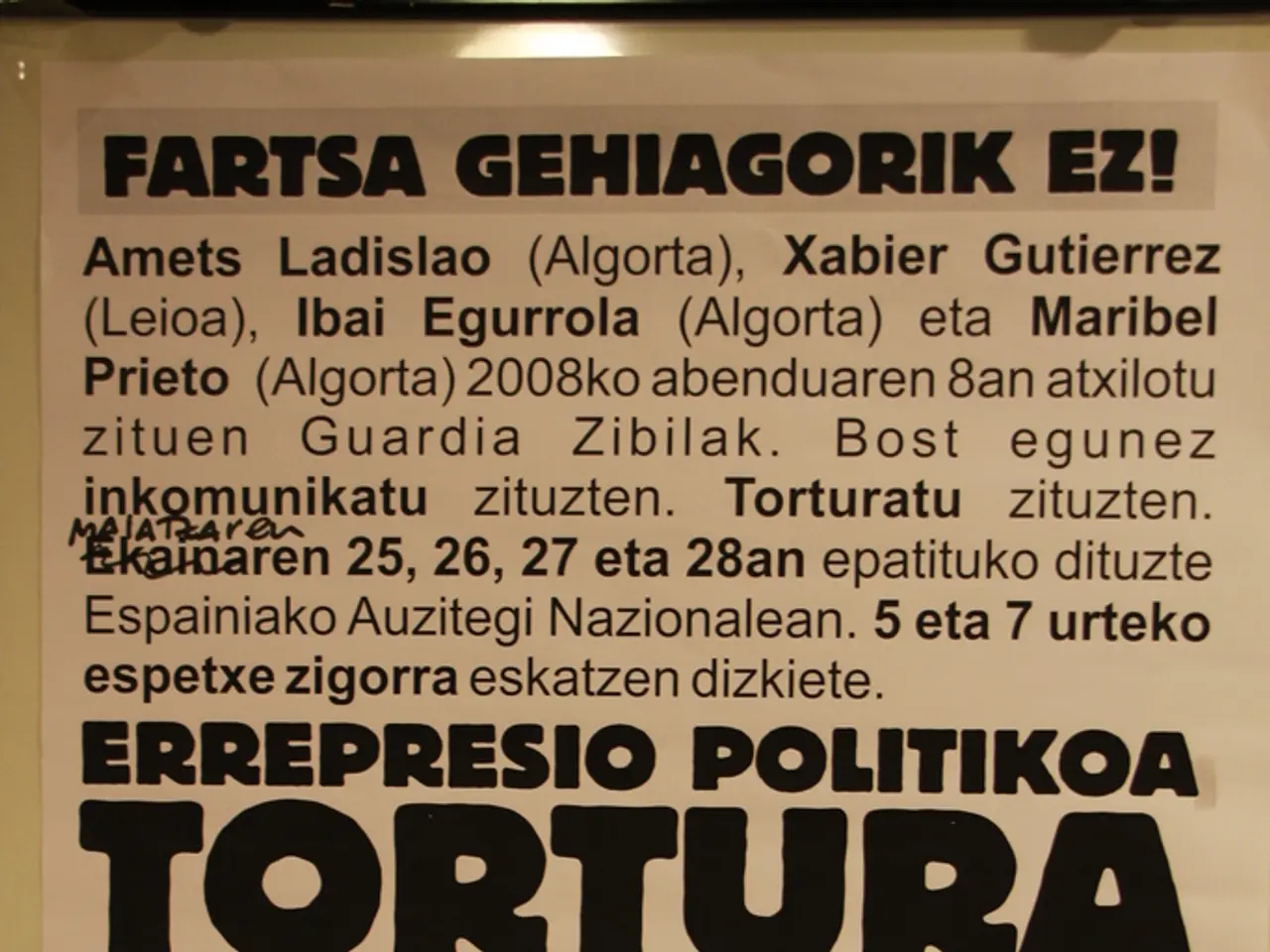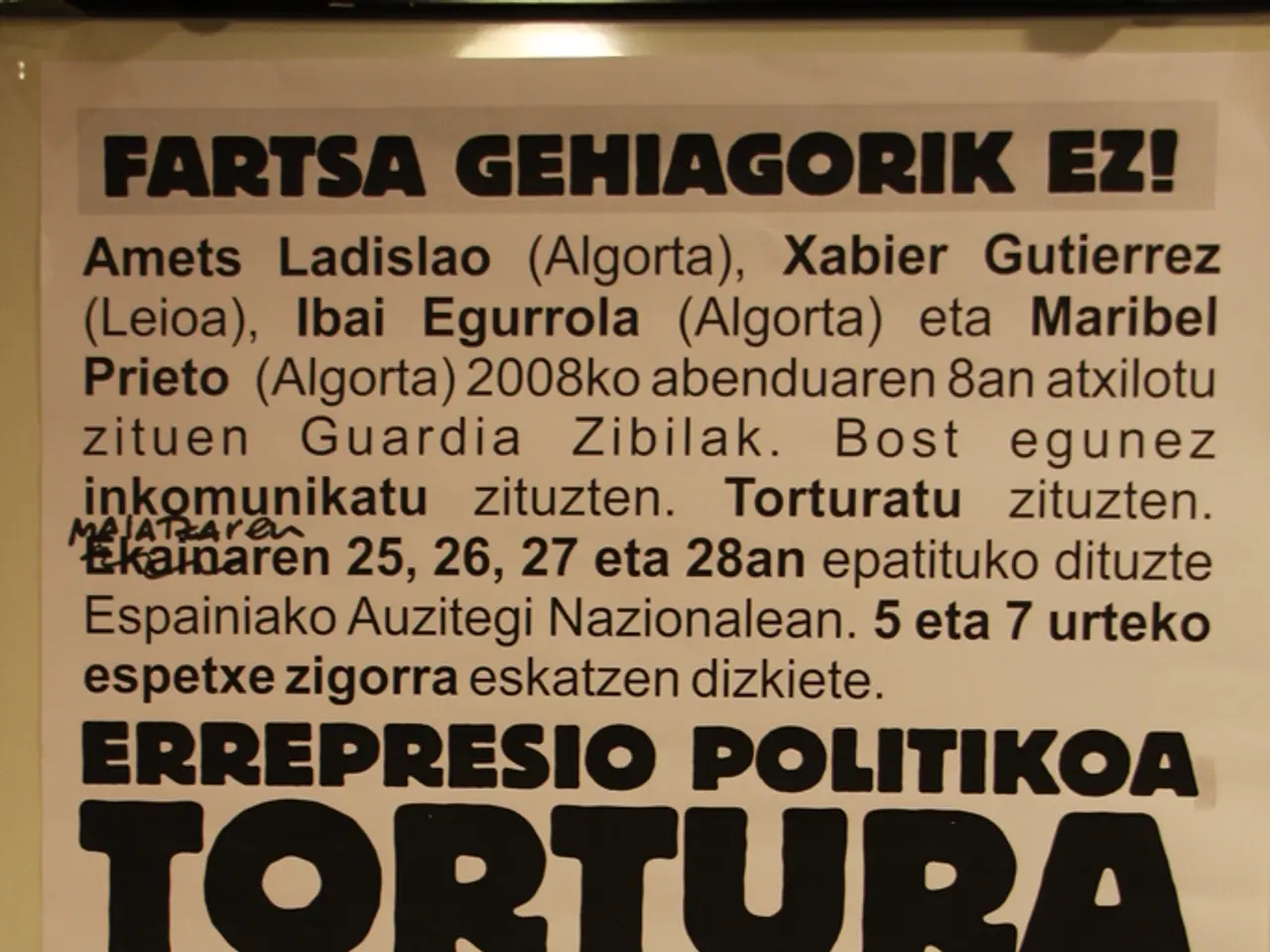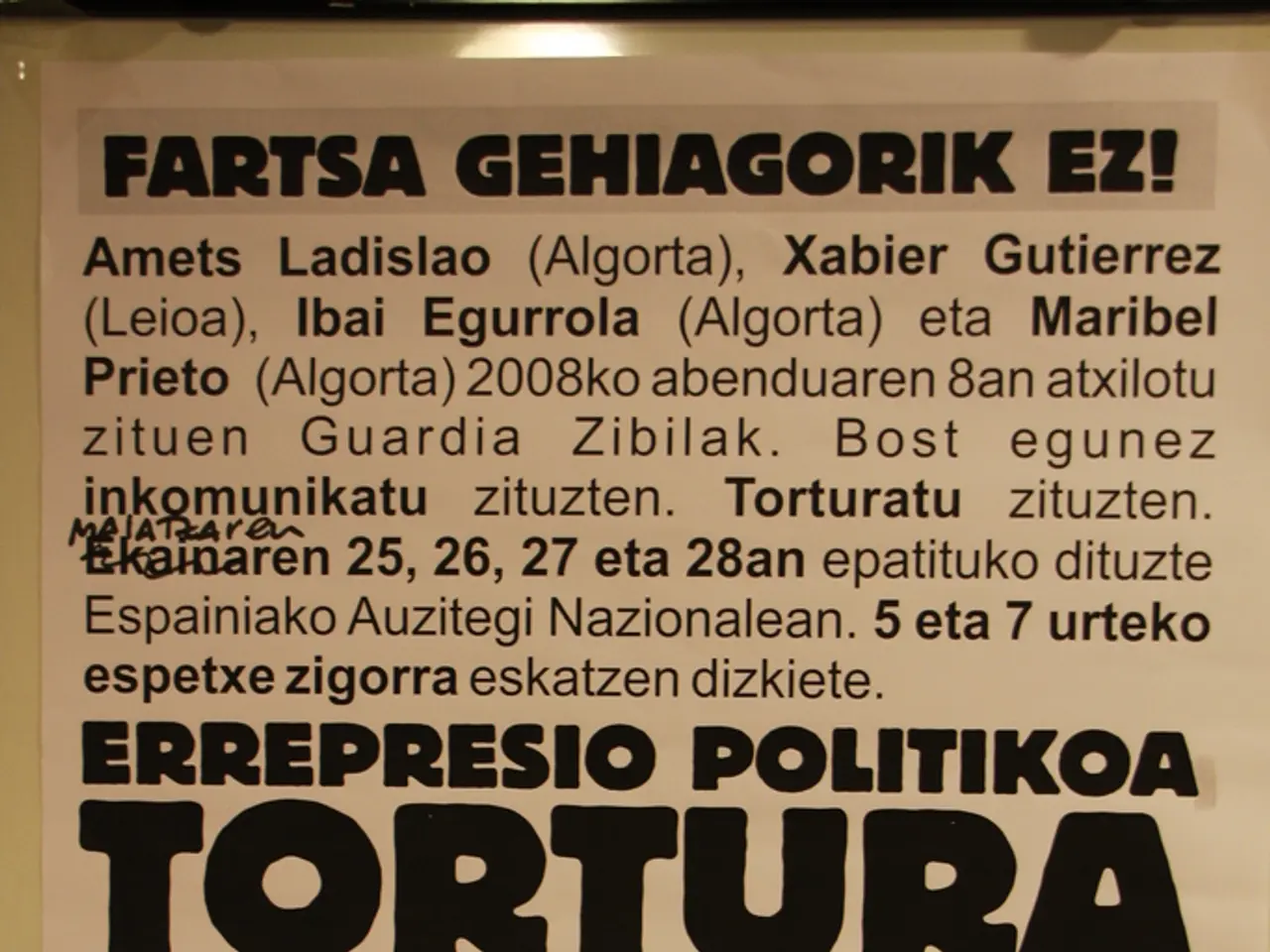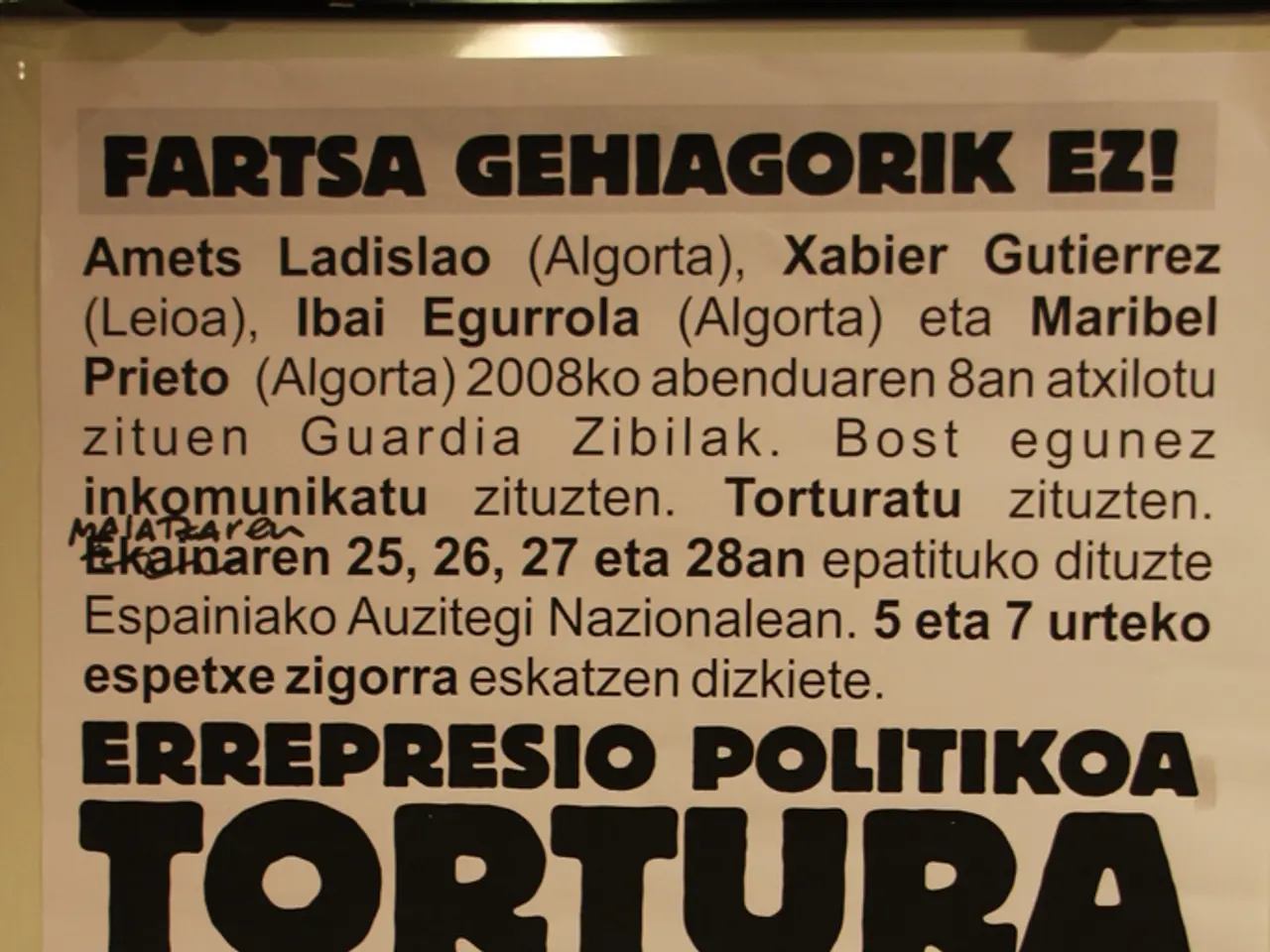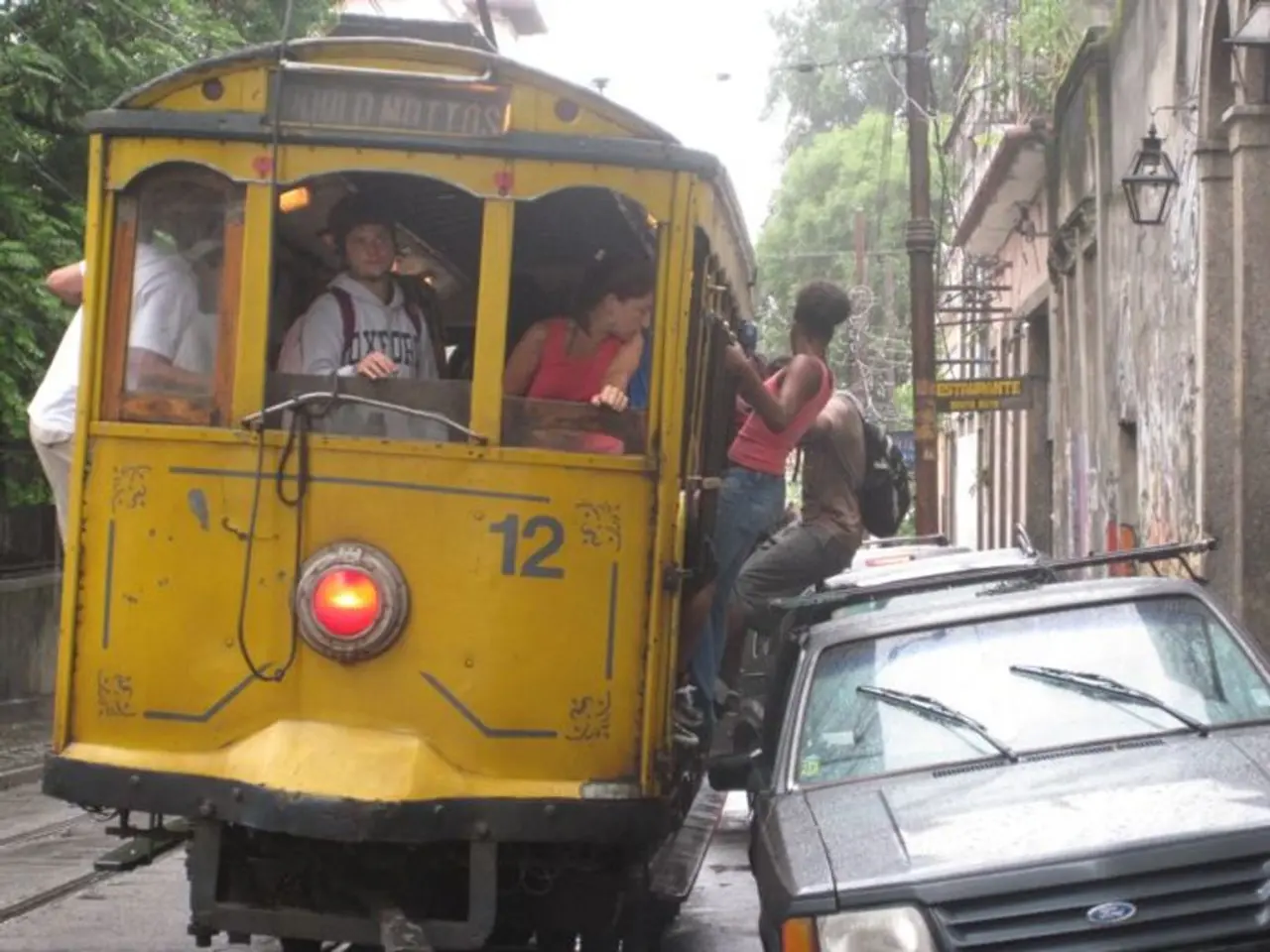Sudan condemns the inclusion of Colombian mercenaries within the forces of the Rapid Support Forces (RSF)
In the ongoing civil war in Sudan, a troubling development has emerged: the involvement of foreign mercenaries, specifically Colombian nationals, fighting alongside the Rapid Support Forces (RSF). This alarming development has been backed by evidence presented by Sudan's Ministry of Foreign Affairs and military [1][3][4][5].
Sudan has accused the United Arab Emirates (UAE), specifically the authorities in Abu Dhabi, of sponsoring and financing these Colombian mercenaries to support the RSF. This involvement is seen as a dangerous escalation that threatens regional stability and peace [1][3][4].
Key evidence includes documents, captured mercenaries, audiovisual materials, and a downed Emirati plane near Nyala Airport in South Darfur, which allegedly facilitated the trafficking of gold, livestock, and weapons [1][2][5]. The RSF's reopening of the strategic Nyala Airport is a significant concern, given its role in exacerbating the conflict.
The Sudanese government has formally submitted this evidence to the United Nations Security Council, warning that the use of mercenaries and external funding from the UAE undermines Sudan’s sovereignty and risks escalating the internal conflict into a broader international crisis [1][3][4].
While the UAE denies any involvement or support for the RSF, calling such claims disinformation aimed at undermining its regional role, the Colombian government has expressed concern regarding the number of Colombian nationals killed in the conflict but has not confirmed official involvement [2][3].
The war in Sudan, which began in April 2023, has left the country in a critical humanitarian situation and is the scene of the world's largest displacement crisis. The presence of foreign mercenaries poses a significant threat to regional and international peace and security [1][3][4].
Colombian President Gustavo Petro has called for prosecution of those who trade in "young blood spilled for money in foreign towns," indicating growing international concern over the use of mercenaries in conflicts [6].
The fall of former president Omar al-Bashir in 2019 marked the beginning of a spiral of violence in Sudan. The conflict began due to disagreements over the integration of the RSF into the Sudanese Army [7].
Costa Rica, meanwhile, has asked the US to pause the implementation of tariffs amid concerns from its export sector [8].
In summary, the involvement of foreign mercenaries, backed by external actors like the UAE, significantly complicates Sudan’s civil war dynamics, inflaming regional security concerns [1][2][3][4][5]. The situation in Sudan poses a threat to regional and international peace and security, with the use of mercenaries and external funding from the UAE undermining Sudan’s sovereignty and risking the escalation of the internal conflict into a broader international crisis.
In light of the UAE's alleged sponsorship and financing of Colombian mercenaries supporting the Rapid Support Forces (RSF) in Sudan, regional politics and international peace are at stake. The presence of foreign mercenaries in sports-unrelated contexts, such as war-and-conflicts, presents a significant threat to general news topics like regional stability and peace.
